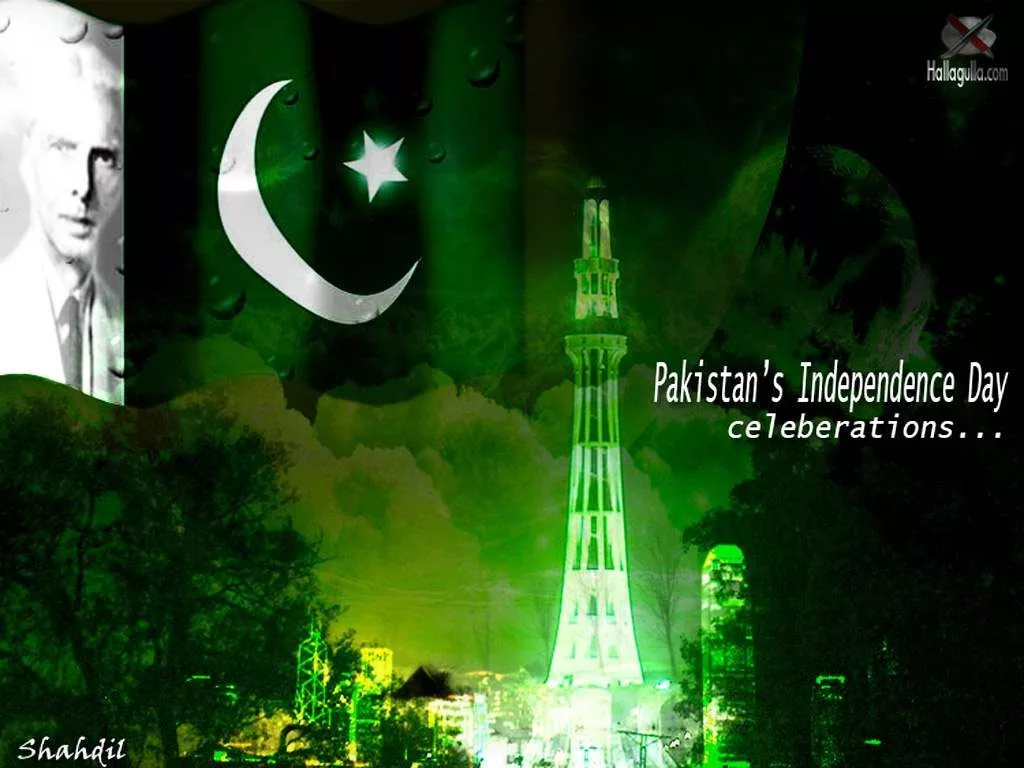In 1947, Pakistan embarked on a journey towards freedom and independence, marking a significant milestone in its history. As we celebrate Independence Day, it’s essential to reflect on the struggles and sacrifices made by our ancestors to secure the freedom we enjoy today. This momentous event shaped the destiny of a nation and ignited a spirit of unity, determination, and resilience among the Pakistani people.

Historical background of Pakistan’s journey towards freedom
Pakistan’s journey towards freedom began with the partition of the Indian subcontinent in 1947. The British Raj, which had ruled over the region for nearly 200 years, faced mounting pressure for self-governance from various political and social movements. The demand for a separate nation for Muslims led to the creation of Pakistan, with Muhammad Ali Jinnah as its first Governor-General.
It was marked by communal tensions, violence, and displacement as millions of people migrated across the newly drawn borders. The wounds of partition still linger in the collective memory of the nation. However, the spirit of resilience and determination prevailed, and Pakistan emerged as an independent nation on August 14, 1947.
The role of key leaders in the independence movement
The journey towards freedom would not have been possible without the vision and leadership of key figures in the independence movement. Quaid-e-Azam Muhammad Ali Jinnah, fondly known as the Father of the Nation, played a pivotal role in advocating for the rights of Muslims and leading the struggle for an independent Pakistan. His unwavering commitment to the cause inspired millions and united the nation under a shared identity.
Other prominent leaders, such as Allama Muhammad Iqbal and Liaquat Ali Khan, also played significant roles in shaping the destiny of Pakistan. Their speeches, writings, and tireless efforts mobilized the masses and galvanized the independence movement.
Significance and symbolism of Independence Day celebrations
Independence Day holds immense significance for every Pakistani, as it symbolizes the triumph of freedom over oppression and self-determination over subjugation. It is a day to honor the sacrifices of our forefathers and pay tribute to the heroes who fought for our rights. The celebrations are a reflection of our collective identity as a nation and serve as a reminder of our commitment to upholding the values of unity, faith, and discipline.
Traditional and cultural aspects of Independence Day celebrations
Independence Day celebrations in Pakistan are marked by vibrant displays of patriotism and national pride. The streets are adorned with green and white flags, while buildings and landmarks are illuminated with colorful lights. People dress in traditional attire, and cultural performances, including music, dance, and theater, take place across the country.
One of the most iconic traditions of Independence Day is the flag-hoisting ceremony. The national flag is raised at government buildings, educational institutions, and public spaces, accompanied by the national anthem. This solemn and proud moment signifies the formal declaration of independence and serves as a reminder of the sacrifices made by our ancestors.
National pride and patriotism on Independence Day
Independence Day evokes a sense of national pride and patriotism among Pakistanis. It is a day when citizens come together, transcending their differences, to celebrate their shared heritage and values. People participate in parades, rallies, and community events to express their love for the country and to reaffirm their commitment to its progress and prosperity.
The spirit of patriotism is also reflected in the display of national symbols, such as the national flag, the crescent and star emblem, and the national anthem. These symbols serve as reminders of our collective identity and the sacrifices made by our freedom fighters.
Commemorating the sacrifices of freedom fighters
Independence Day is a time to remember and honor the sacrifices of the freedom fighters who laid down their lives for the cause of independence. From the leaders who led the movement to the ordinary citizens who fought on the frontlines, their sacrifices and contributions must never be forgotten.
The stories of heroes like Bhagat Singh, Maulana Abdul Kalam Azad, and Fatima Jinnah inspire generations to strive for justice, equality, and freedom. Independence Day serves as a platform to educate and instill in future generations an appreciation for the sacrifices made by those who came before them.
Modern-day challenges and progress since independence
As we celebrate the progress and achievements made since independence, it is crucial to acknowledge the challenges that lie ahead. Pakistan has faced numerous obstacles on its path to development, including political instability, economic disparities, and security concerns. However, the resilience and determination of the Pakistani people have enabled the nation to overcome these challenges and make significant strides.
Since independence, Pakistan has made progress in various sectors, including education, healthcare, infrastructure, and technology. The country has also emerged as a nuclear power and a key player in regional geopolitics. However, there is still work to be done to address social inequality, poverty, and corruption, and to ensure sustainable and inclusive development for all citizens.
Importance of preserving and promoting national heritage
Independence Day is an opportunity to reflect on the importance of preserving and promoting Pakistan’s rich cultural and historical heritage. Our heritage encompasses not only monuments, artifacts, and traditions but also the values and principles that define our nation. It is crucial to pass on this heritage to future generations, as it serves as a source of identity and inspiration.
While celebrating Independence Day, it’s important to acknowledge the challenges that Pakistan continues to face. These include poverty, education gaps, terrorism, and political instability. However, the spirit of hope and resilience shines through as Pakistanis strive to overcome these obstacles and create a brighter future for themselves and their coming generations.

Quaid e Azam’s message for Pakistani children’s
As the founding father of our great nation, I want you to know that you are the future of Pakistan. You hold within you the power to shape the destiny of our country. Always remember that education, hard work, and integrity are the cornerstones of a strong and prosperous nation.
Strive to excel in your studies, for education is the key to unlocking your potential and realizing your dreams. Have faith in yourselves and your abilities, for you are capable of achieving greatness. Always aim to be the best versions of yourselves, and never shy away from pursuing knowledge and innovation. Treat all individuals with respect, regardless of their background, religion, or ethnicity. Unity and tolerance are the bedrock of our society, and it’s your duty to uphold these values.
Efforts should be made to protect and restore historical sites, promote traditional arts and crafts, and celebrate the diversity of our cultural traditions. By preserving our heritage, we can strengthen our national identity and foster a sense of pride and belonging among all Pakistanis.
Conclusion: Reflecting on the journey and looking towards the future
As we commemorate Independence Day, let us remember the sacrifices of our ancestors and the struggles they endured to secure the freedom we enjoy today. Let us celebrate the progress we have made as a nation and acknowledge the challenges that lie ahead. It is through unity, faith, and discipline that we can overcome these challenges and build a better future for Pakistan.
As we look towards the future, let us strive for a nation where every citizen has equal opportunities, where justice and equality prevail, and where our cultural diversity is celebrated. May the spirit of Independence Day continue to inspire us to work toward a prosperous and peaceful Pakistan, where the ideals of freedom, democracy, and social justice are upheld.





